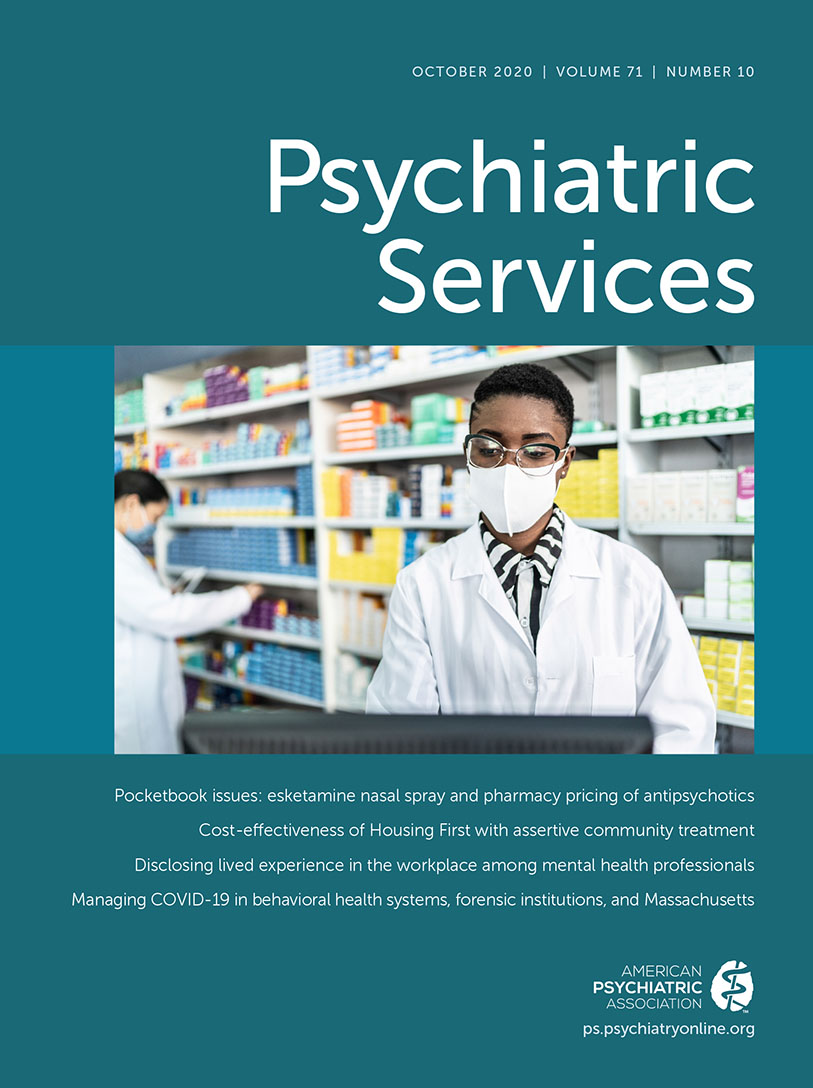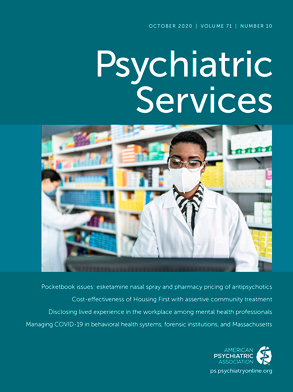As many other U.S. urban centers, Miami-Dade County, Florida, faces a disproportionate number of individuals with untreated or undertreated mental illnesses who come into contact with the justice system (
1). Police officers are often the first responders to individuals in crisis, and such encounters can unnecessarily result in arrest and incarceration. The Eleventh Judicial Circuit Criminal Mental Health Project (CMHP), a court-based jail diversion program, was established to divert individuals with serious mental illness away from the criminal justice system into community-based treatment and support services.
The success of the CMHP is built on active collaboration among a diverse array of community stakeholders from the criminal justice, mental health care, and public health systems, as well as local government, community advocates, consumers, and family members of people with mental illnesses. This column describes the establishment and maintenance of these partnerships and recommends methodologies that can be used to promote and sustain them.
The Launch
In 2000, one of the authors of this column, Associate Administrative Judge Steven Leifman of the Eleventh Judicial Circuit of Florida, organized a 2-day meeting to gather stakeholders from the community to examine the intersection between the justice system and the community mental health treatment system (
2). The meeting was funded by the Gather, Assess, Integrate, Network, and Stimulate (GAINS) Center, a service program of the Substance Abuse and Mental Health Services Administration (SAMHSA) that provides technical assistance to expand community services to adults with behavioral health treatment needs who become involved in the criminal justice system (
2). The goal of the meeting was to review how the community responds to individuals with serious mental illness in the criminal justice system. Meeting attendees included law enforcement officers, attorneys, judges, and court staff; mental health treatment providers and funders; employees of state and local social service agencies; and consumers of behavioral health treatments and their family members (
2).
A major takeaway from this meeting was that the Miami-Dade County mental health treatment system was dysfunctional, largely because of a lack of formalized coordination across stakeholders (
2). The stakeholders recognized that this poor coordination significantly contributed to the mental health crisis and high recidivism rates. Information gathered from this meeting was used to plan and begin limited CMHP operations that focused on connecting services among the stakeholders, linking individuals involved in the justice system to services, and monitoring linkages to ensure provision of ongoing treatment and support. The CMHP operates two components: prebooking diversion, consisting of crisis intervention team training to teach law enforcement officers how to more effectively respond to people experiencing a mental health crisis and to divert them from arrest into treatment when appropriate, and postbooking diversion, serving individuals booked into the jail and awaiting adjudication. For a detailed description of the CMHP, see the work of Leifman (
2).
When the CMHP first launched, a local foundation provided initial funding to assess the mental health status and needs of individuals charged with misdemeanors booked into the county jail and to examine how to connect these individuals to treatment services (
2). Data gathered from these initial efforts were used to apply for and receive a 3-year SAMHSA grant that allowed the CMHP to expand its diversion capacity by adding staff and providing additional resources to secure treatment services. Florida’s Department of Children and Families provided funding for case management positions and other support services, including housing, medications, and transportation (
3). In addition, researchers at Florida International University partnered with the CMHP on grant applications for program planning and evaluation. As a result of reductions in recidivism and other positive outcomes, Miami-Dade County and the Department of Children and Families provided funding for CMHP staff at the end of the 3-year SAMHSA grant (
2).
Growth
In subsequent years, additional grants and funding were obtained from Florida’s Department of Children and Families. In 2007, the state’s funding was used to expand postbooking jail diversion to include lower-level, nonviolent felonies. In 2009, the department funded the diversion of individuals adjudicated incompetent to proceed to trial from admission to more costly state forensic treatment facilities. In 2010, the department formally funded the South Florida Behavioral Health Network, recently rebranded as Thriving Mind South Florida, to be the local nonprofit entity that contracts and oversees treatment services and that manages data, coordinates care, and improves service quality for a network of mental health and substance use disorder providers. Thriving Mind is a nonprofit, local, community-embedded “managing entity,” one of seven covering all of Florida that are required to allocate resources and maintain quality control over local treatment services. Last year, Thriving Mind served as the regional coordinator of treatment services for law enforcement, criminal justice, and school districts.
Beginning in 2010, Thriving Mind funded staff positions within the CMHP and began to fund most services for CMHP-identified diversion program participants. At the same time, a specialized unit was created to expedite access to federal entitlement benefits among program participants so that appropriate individuals could be transitioned from the Department of Children and Families to Medicaid funding. In 2016, Thriving Mind funded CMHP to streamline identification and assessment of program participants in the jail and develop community reentry plans. In 2018, Thriving Mind received state funding for local assisted outpatient treatment in which criminal court judges presiding over misdemeanor cases could leverage treatment compliance by ordering outpatient treatment under the state’s civil commitment laws. Funding from the Department of Children and Families, through Thriving Mind, has been critical for CMHP’s growth. Thriving Mind has been a natural partner for achieving the “diversion-into-treatment” objectives of the CMHP.
Maintenance
Given the challenge of aligning health care, public health, and broader community and social service systems to maintain the CMHP, an approach was needed to guide the complex collaborative network toward shared understanding, decision making, and action. Of critical importance to collaboration and core best practices, which have been prioritized by the CMHP, are efforts focused on communication, trust, and respect (
4). Two examples are that a mental health committee was established within the courts, and a local chapter of Florida Partners in Crisis (a statewide advocacy organization) was convened to provide a community forum for exchanging ideas, discussing community needs, and addressing barriers to more effective collaboration (
2).
Another critical component for sustaining the CMHP is the program’s use of systems thinking, an approach for studying a system as a set of interconnected elements (
5). Specifically, the CMHP used the sequential intercept model, a conceptual framework that allows communities to develop a comprehensive understanding of how individuals with serious mental illness move through the criminal justice system (
6). Using this model, community partners documented how individuals with serious mental illness interact with the justice system along six “intercepts” or critical intervention points: law enforcement, initial detention and court hearings, jails and courts, reentry, community corrections, and community services (
Table 1). The model has provided an organizing tool that allows stakeholders to identify areas for improvement and to prioritize them for improving the complex system.
In 2014, a second summit meeting was convened during which the model was used to frame a comprehensive mapping of resources and infrastructure around the community and to identify strengths, weaknesses, and areas of unmet need. Following this exercise, community leaders and policy makers were convened to review findings and develop recommendations regarding delivery of behavioral health services to target populations.
Next Steps
In 2004, Judge Leifman and staff from the CMHP began to work with Miami-Dade County on plans to use voter-approved general obligation bond funds ($22,100,000) to convert a decommissioned 208-bed forensic state treatment facility to a comprehensive, coordinated system of care for individuals with serious mental illness diverted into treatment pre- or postarrest. In 2016, the county allocated an additional $12,000,000 to the project, and the Public Health Trust of Miami-Dade County allocated $8,000,000 in additional funding. In 2019, following these years of preparation, Thriving Mind entered into agreements with Miami-Dade County for the purpose of providing oversight of the construction phase and eventual operations of the facility, now called the Miami Center for Mental Health and Recovery.
The new center will expand the existing system of care managed by Thriving Mind, creating a one-stop facility with services that provide crisis stabilization beds, residential treatment, and transitional housing, as well as access to primary care (including dental care), employment training, and legal services (
7). Aiming to disrupt the costly cycle of recidivism, the facility will target individuals with serious mental illness who are frequent recidivists in the criminal justice and mental health systems. In addition to treatment and recovery services within the center, linkage to broader community services and resources needed to maintain recovery will be provided.
Since the launch of the CMHP, annual cost avoidance has been estimated at $12,000,000 due to a 45% lower jail population and the closure of a jail facility (
8; unpublished data on average daily jail population from Miami-Dade Corrections and Rehabilitation Department in 2015). Despite fewer people in jail, most of these savings have been redirected back to the jail system, with no additional funding allocated to Thriving Mind to support the more cost-effective treatment of “diverted” individuals in the community. Although the funds were earmarked for renovation of the center, needed treatment service funding is still being gathered from potential federal, state, county, and private sources. The sustainability of community treatment services for this population will likely depend on funding from many sources, including criminal justice savings that could be allocated to an ongoing expansion of treatment capacity in the community. Additional systems science methods (e.g., simulation modeling) would be beneficial to estimate the business case for investment and capacity allocation.
Conclusions
The success of the CMHP is the result of several factors, including motivated local champions, a functioning system of funded treatment services, access to additional grant funding, formalized communication support, and a focus on expansion. Although some aspects of the CMHP-Thriving Mind partnership are unique to Miami-Dade County, we propose that the approaches outlined here can be adopted by other localities to improve the treatment of individuals with serious mental illness.

